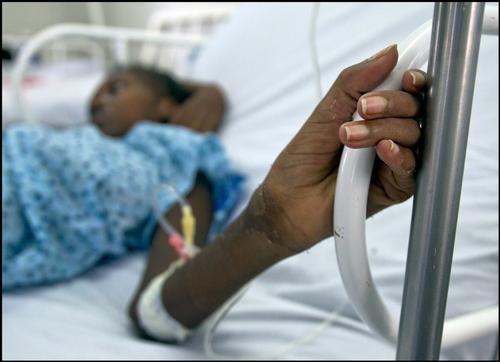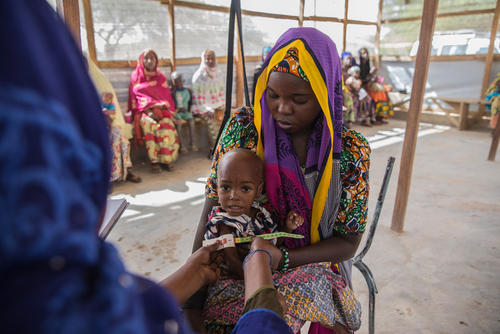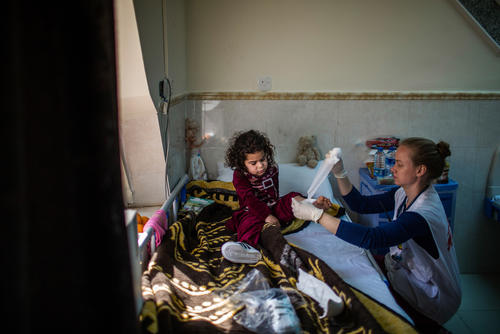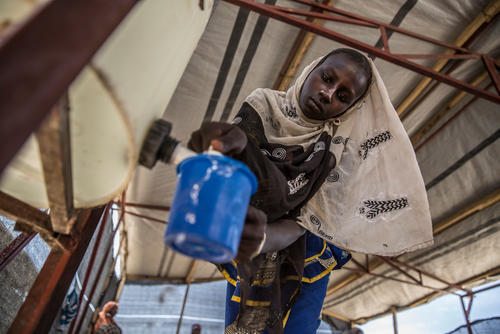Abortions undertaken in poor sanitary conditions can lead to fatal complications. These are currently among the leading causes of maternal mortality worldwide. Since 2004, Médecins Sans Frontières (MSF) has provided voluntary safe abortions for women across our field operations.
Catrin Schulte-Hillen, MSF advisor on reproductive health, explains the implications and difficulties of this decision.

Complications from Unsafe Abortions Are A Daily Emergency
Why has MSF committed specifically to providing voluntary safe abortion in the field?
The complications associated with unsafe abortions – those not carried out under medical supervision – are among the most common causes of maternal mortality. In 2014 and 2015, MSF teams took in more than 20,000 women with abortion complications, including severe haemorrhaging, infections and peritonitis. These can cause injury, sterility and even death. We estimate that between 50 and 80 per cent of the complications were due to abortions carried out in poor conditions and/or by unqualified personnel.
In developed countries, the percentage of unsafe abortions is around six per cent, while in Africa and Latin America, it’s 97 per cent and 95 per cent, respectively.
Since 2004, access to safe abortions – provided under medical supervision – has been an official part of the healthcare services provided by MSF teams in the field. Our teams have three key responsibilities: to respect the reason the woman or girl gives for wanting to have an abortion; to ensure she can discuss her desire to have an abortion with medical staff and take an informed decision; and to provide quality medical care.
Between 2013 and 2015, only 25 to 35 per cent of MSF projects that were supposed to provide abortions were actually doing so. This is still quite low, given that MSF provides maternal care to around 200,000 women each year. Still, the figure is on the rise and demonstrates the gradual progress we are making in this area.
What is preventing MSF teams from providing safe abortions?
The main reasons are internal to MSF. The most common arguments we hear – at various levels within the organisation – are: “there isn’t the need,” “it’s too complicated,” or even “it’s not the role of MSF.”
These reasons tend to reveal things about staff themselves: discomfort with the initiative, lack of knowledge surrounding the issue, or a personal objection.
In most societies, there are strong social standards and prejudices linked to abortion, including a certain degree of reticence to practice, or even talk about it. We need to take these social considerations into account, while creating an environment that enables medical staff to express their professional convictions and concerns about abortion. From this, we can help each individual reach a balance between personal opinion and professional responsibility.
Are the obstacles to abortions also legal issues in some cases?
You have to be wary of legal arguments, especially when they are used to prevent someone from having a medically supervised abortion. These arguments can conceal a poor understanding of the actual legal framework around abortion. More importantly, they do not give sufficient priority to the medical needs or personal wishes of the women involved.
For context, abortions are completely illegal in only six countries around the world, none of which are in Africa or Asia. In 97 per cent of countries, they are allowed only when it’s necessary to save the woman’s life. Sixty per cent extend this to when it’s necessary for health reasons (including mental). Furthermore, over 50 per cent of countries allow abortions for pregnancies caused by rape. However, even where there’s legal flexibility, this doesn’t exclude the possibility of legal action.
These hurdles have to be looked at from a broader perspective, balanced out by focusing on the respect and safety of the women involved. With each abortion case, you have to evaluate the interpretation of the local laws, the local customs, and the presence of medical facilities able to carry out safe abortions and which we can recommend to women.
Are there risks associated with carrying out abortions for the MSF teams?
Safe abortions are an obvious medical need, yet still very neglected. MSF must not give up on dealing with this problem just because “it’s complicated”. We have to be ready to accept and deal with conflicts and possible repercussions, while striving to reduce the risks for women.
In countries with particularly strict rules on abortion, MSF works with international volunteers who assume the responsibility for carrying out procedures. Confidentiality is also of utmost importance, to protect women and girls who have chosen to have an abortion.
It’s vital to communicate clearly about the issue, explaining our medical mission, and our arguments and justifications for providing this type of care to women who request it.
Our opportunity to change attitudes towards abortion often depends on our ability to create a dialogue on the issues; dialogue both with MSF medical staff and other healthcare professionals in local communities.
Catrin Schulte-Hillen is the main author of the paper ‘Why Médecins Sans Frontières (MSF) provides safe abortion care and what that involves’ published on 21 September in the online medical portal: BioMed Central.






